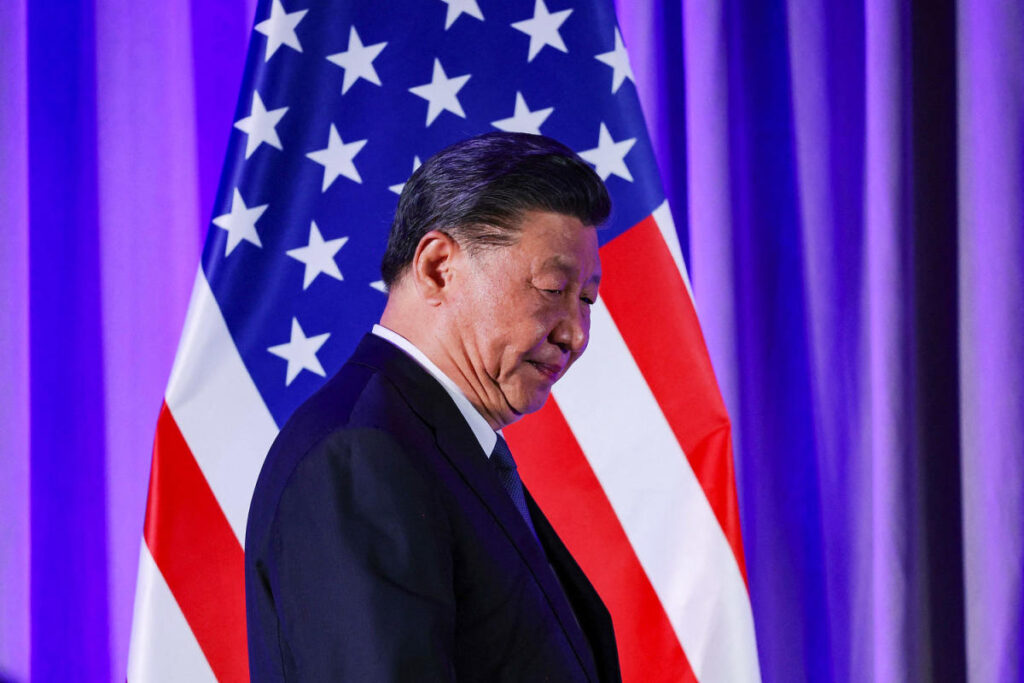The relationship between the United States and China, the two largest economies in the world, is a focal point of the upcoming U.S. presidential election, where the candidates—former President Donald Trump and Vice President Kamala Harris—offer starkly different approaches to foreign policy. Trump’s aggressive stance, particularly his commitment to a trade war against China, may escalate tensions and destabilize global markets, potentially benefiting Beijing in a scenario characterized by chaos. Conversely, Harris is viewed as potentially more conciliatory, with a focus on strengthening alliances with U.S. partners to counter China’s expanding influence. Although Xi Jinping has remained noncommittal regarding his preference for either candidate, experts suggest that Chinese officials may harbor a slight inclination toward Harris due to her alignment with efforts made under the Biden administration to improve U.S.-China relations.
Chinese political analysts stress that regardless of who wins, relations between China and the U.S. are likely to face significant challenges. Both candidates appear to take a stringent view on China, leaning toward a national security perspective that has gained traction among American politicians across party lines. Former dean of Peking University’s School of International Studies, Jia Qingguo, noted that Trump’s unpredictability poses a distinct risk; he could implement emotional and erratic measures that might significantly worsen bilateral ties. In contrast, Harris is perceived to offer a sense of predictability, as policymakers expect her to continue some of Biden’s tougher, albeit manageable, policies toward China.
Trade relations are another critical dimension where both candidates diverge. While neither has articulated a comprehensive strategy for managing ties with China, both Trump and Harris align on maintaining or even increasing tariffs on Chinese imports. Trump’s campaign rhetoric emphasizes aggressive trade policies, suggesting broad tariffs that could strain the U.S. economy and potentially lead to increased conflict with China. Conversely, Harris is anticipated to follow Biden’s existing strategies that focus on targeted tariffs and restrictions, creating a somewhat stable environment for U.S.-China relations, though challenges still loom on the horizon.
An essential aspect of the implications of this election on U.S.-China relations is the situation in Taiwan, which remains a contentious issue. While Trump has made provocative statements suggesting he could exert pressure on China regarding Taiwan, his previous actions may also raise concerns due to their unpredictability. Harris, on the other hand, insists on supporting Taiwan’s defense while pursuing military dialogue with China. This dynamic indicates that both candidates are expected to uphold the U.S. commitment to Taiwan, albeit through different methods and rhetoric, which may impact regional stability in East Asia.
Harris’s vice presidential running mate, Minnesota Governor Tim Walz, adds an interesting dimension to the Democratic ticket. With experience living and working in China, Walz offers insights into the country that’s deeper than many politicians. He has expressed a critical stance on China’s human rights record, suggesting a willingness to engage diplomatically while firmly upholding American values and interests. In contrast, Republicans, particularly those aligned with Trump, often emphasize a more aggressive economic competition narrative and have scrutinized Walz’s history in China to question his loyalty on national security matters.
In conclusion, the direction of U.S.-China relations hinges significantly on the outcome of the election. With escalating tensions over trade, military posture in Asia, and issues like human rights, both Trump and Harris present contrasting visions for American foreign policy. Ultimately, navigating the challenges presented by China will require sophisticated strategies from whichever candidate prevails, as both the U.S. and China work to redefine their roles on the global stage. As concerns grow about the implications of their policies, it remains evident that a careful calibration of America’s approach will be crucial for fostering stability in one of the most critical bilateral relationships in modern geopolitics.

